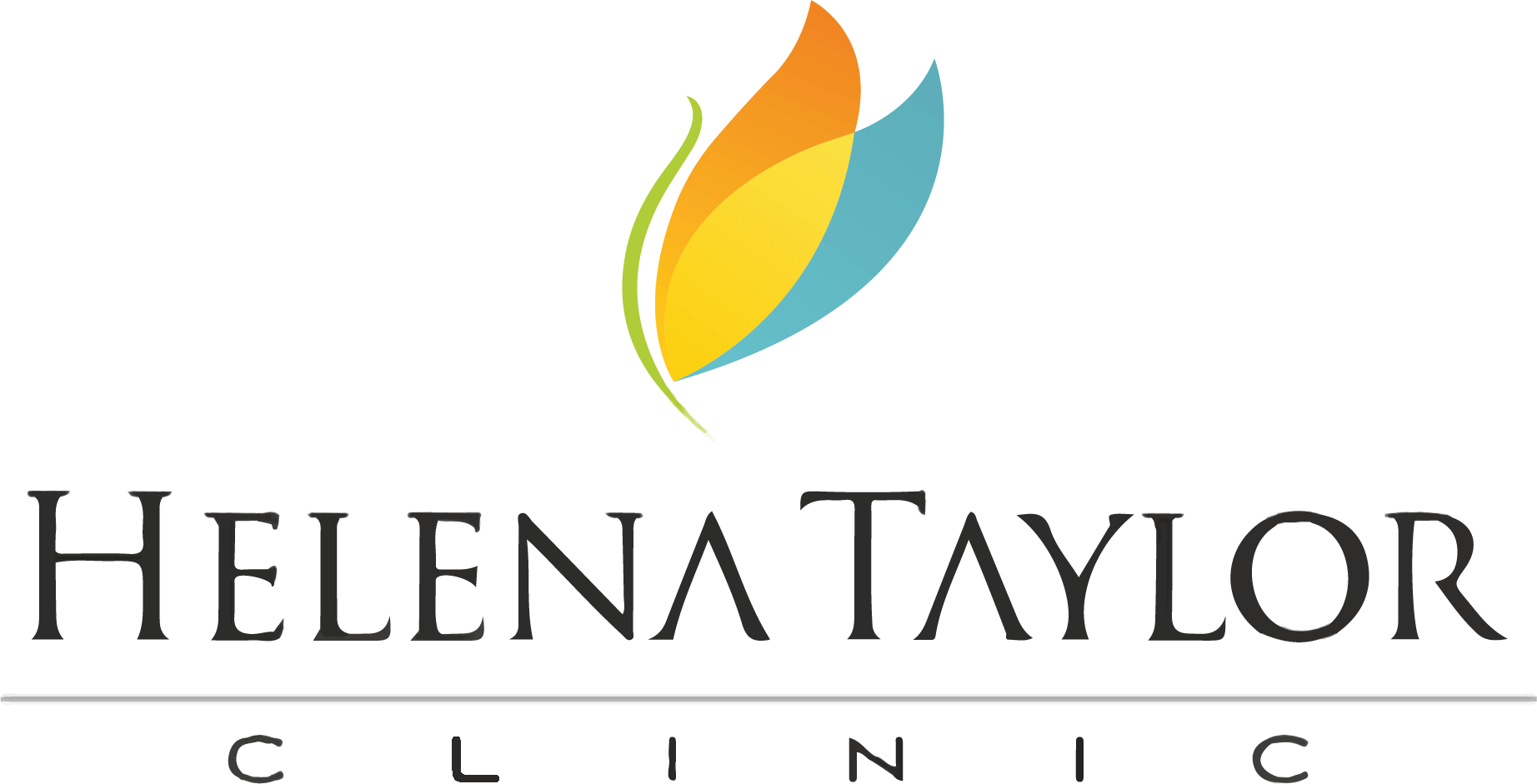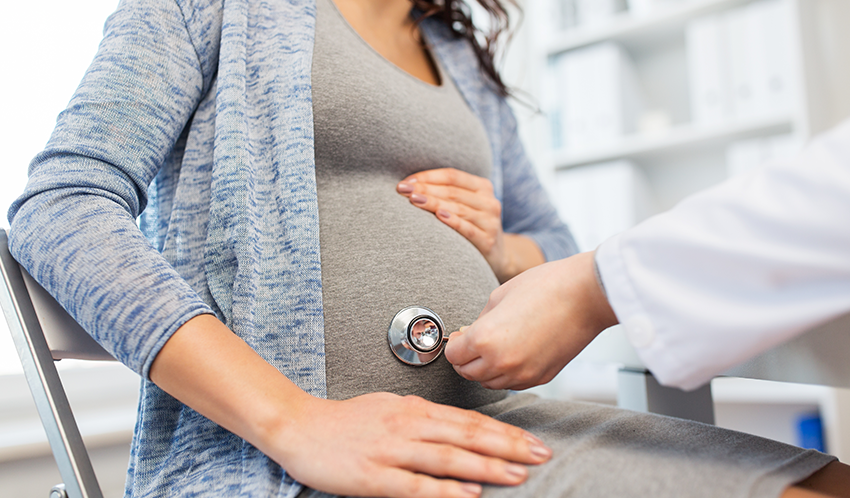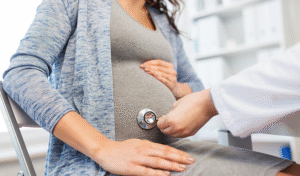Having a baby is one of the most amazing, miraculous, and life-altering moments of life. Yet with all the fan-fare focused on the birth and your new bundle of joy, it can be easy to forget that your body has just undergone a very intense physical and emotional experience and that it can take a while to recover and feel “normal” again.
The postpartum spans over a period of six weeks after childbirth. This is a joyous time, but it’s also a period of adjustment and healing for mothers. During these weeks, as you bond with your baby , one needs to make sure that you also have a bond with your body. Some key points can be:
- Physical recovery
- Emotional well being
- Pelvic floor health
- Building a support system
The postpartum time period is most often associated with the physical recovery from fatigue and the strain of labor and delivery. It is typically defined as the first six weeks after a vaginal delivery or eight weeks after a cesarean one. In addition to the physical healing that occurs in the weeks following the birth of a child, progesterone, estrogen, and prolactin hormone levels are also significantly changing consequently impacting the mother’s mood, sleep and more. On top of these hormonal and physical changes, there is a lot to adjust to and navigate while taking care of the new addition to the family. Due to these reasons and more, it is critical to incorporate postpartum wellness strategies to stay healthy and reduce stress.
As hormone levels fluctuate and new responsibilities arise, finding support from the best gynaecologist in Dubai becomes crucial. At Helena Taylor Clinic, our team of expert gynaecologists specializes in guiding mothers through this delicate phase, providing personalized care and expertise to ensure optimal postpartum wellness. Postpartum wellness refers to taking care of oneself both emotionally and physically in the immediate six to eight weeks following the birth of a child.
5 postpartum wellness strategies
Listed below are five essential wellness strategies to consider postpartum:
- Be kind to yourself
- Maintain a growth-oriented mindset
- Incorporate a daily check-in
- Move and nourish
- Allow and seek support
According to a recent study, 75% of postpartum individuals reported improved mental well-being and overall health when actively engaging in self-care practices within the first six weeks after delivery. Giving birth is a miraculous and transformative experience. However, the journey of motherhood doesn’t end in the delivery room—it’s only just beginning. The postpartum period, often referred to as the “fourth trimester,” is a critical time for a mother’s physical and emotional well-being.
In this blog, we’ll discuss the essential aspects of postpartum care and explore how new mothers can navigate this transformative period with care and mindfulness.
Physical recovery
- Importance of adequate rest
After childbirth, your body needs time to heal. Adequate rest is crucial for the recovery process. Unfortunately, with the demands of caring for a newborn, sleep can become a rare commodity. Prioritise rest by taking short naps when your baby sleeps and enlisting help from friends or family to ensure you get the sleep you need. - Tips for quality sleep with a newborn
Creating a conducive sleep environment, practicing relaxation techniques, and establishing a sleep routine can help improve the quality of your sleep. Additionally, consider sharing night time responsibilities with a partner to lighten the load. - Postpartum diet essentials
Postpartum recovery requires a well-rounded diet. Prioritise nutrient-rich foods: fruits, veggies, lean proteins, and whole grains. Hydration is vital, especially for breastfeeding, aiding in healing. Calcium-rich diet aids breastfeeding. - Hydration role in recovery
Maintaining energy and bodily functions depends on staying hydrated. Keep water handy and include watermelon and cucumber in your diet for extra hydration. (34 days). It prevents constipation and UTI. - Gradual physical activity reintegration
Avoid intense exercise right after childbirth. Opt for gentle activities like walking or postpartum yoga to boost mood and energy. Consult your healthcare provider before starting any exercise routine. - Postpartum-friendly exercises
Pelvic floor exercises, kegels, and gentle stretches can aid in rebuilding core strength. Many communities offer postpartum exercise classes specifically designed for new mothers.
Emotional well-being: differentiating between postpartum blues and depression
New moms often face mood swings, often called baby blues, in the initial postpartum weeks. But ongoing feelings of sadness or despair may signal postpartum depression. It’s vital to distinguish between the two for the right help.
- Getting help for emotional struggles
If you’re emotionally challenged, connect with friends, family, or a mental health pro. Postpartum support groups offer a secure space to share, gain insights. - Significance of skin-to-skin contact
Skin-to-skin promotes bonding, benefiting both you and your baby. Embrace cuddle time, weave skin-to-skin moments into your daily routine. - Establishing a connection through bonding activities
Build a strong bond by doing things like reading, singing, or just talking to your baby. The connection deepens gradually over time. - Incorporating stress-reduction techniques
Reduce stress with techniques like deep breathing, meditation, or mindfulness. These activities bring calm and ease stress. - Seeking professional help when needed
If stress becomes too much, seek professional help. Postpartum mental health therapists offer valuable support and coping strategies. - Postpartum care
After giving birth, the postpartum period needs careful attention. Understand postpartum recovery nuances and practice thoughtful self-care for a smooth transition into motherhood. At Helena Taylor Clinic, a specialized maternity hospital Dubai offers tailored support and compassionate care to guide you through this transformative journey with confidence and comfort. Here’s a detailed exploration of the postpartum care journey:
- Understanding postpartum recovery timeline:
- Recognize that postpartum recovery is a gradual process that takes about 6 weeks to return to pre-pregnancy status, varying for each woman.
- Celebrate small victories and milestones along the way, acknowledging progress.
- Self-care practices:
- Establish a self-care routine that includes short breaks for personal time.
- Prioritise activities that bring joy and relaxation, fostering emotional well-being.
- Consider activities like warm baths, reading, or engaging in hobbies that promote relaxation.
- Pelvic floor health:
- Recognize the importance of pelvic floor health in postpartum recovery.
- Consult with a healthcare provider or physiotherapist for personalised guidance.
- Incorporate pelvic floor exercises, such as Kegels, into your routine to strengthen these muscles.
- Recovery milestones:
- Understand that physical recovery milestones vary for each woman.
- Be patient with yourself, acknowledging the uniqueness of your postpartum journey.
- Celebrate achievements, whether it’s regaining strength, improved mobility, or emotional resilience.
- Emotional adjustments:
- Be aware of the emotional adjustments that come with the postpartum period.
- Seek support from loved ones, friends, or professionals to navigate emotional challenges.
- Normalise the range of emotions experienced, from joy and fulfilment to moments of stress or uncertainty.
- Holistic well-being:
- Embrace a holistic approach to well-being, considering both physical and emotional aspects.
- Foster a positive mindset, focusing on self-compassion and acknowledging the challenges of new motherhood.
- Engage in activities that promote mental health, such as mindfulness, journaling, or connecting with supportive communities.
- Professional guidance:
- Do not hesitate to seek professional guidance if you encounter physical or emotional challenges.
- Regular postpartum check-ups with healthcare providers are crucial for monitoring recovery.
- Mental health professionals can provide valuable support for emotional well-being.
- Nutritional support:
- Continue to prioritise a balanced diet that supports both physical recovery and breastfeeding.
- Consult with a nutritionist if needed to ensure you’re meeting your nutritional requirements.
- Stay hydrated, as proper hydration is fundamental for recovery and overall health.
- Contraception counselling from your health care expert
- Understanding postpartum recovery timeline:
Conclusion
Amidst the whirlwind of new motherhood, it’s simple to overlook personal well-being. Yet, attending to oneself is crucial not just for one’s health but also for the welfare of the newborn. Handling both physical recuperation and emotional health empowers you to traverse the postpartum period with resilience and poise.
Recognize that seeking aid, when necessary, reflects strength, not frailty. Embrace the motherhood journey with self-kindness and prioritise the care rightfully due to both you and your infant.
At Helena Taylor Clinic we work hand in hand with you and your baby to ensure that both of you enjoy and have healthier journey together.













